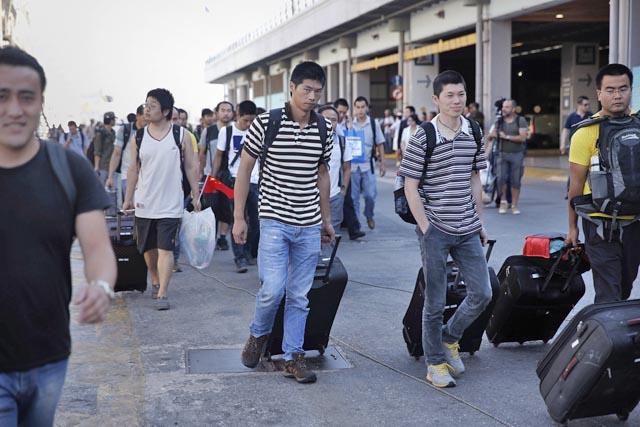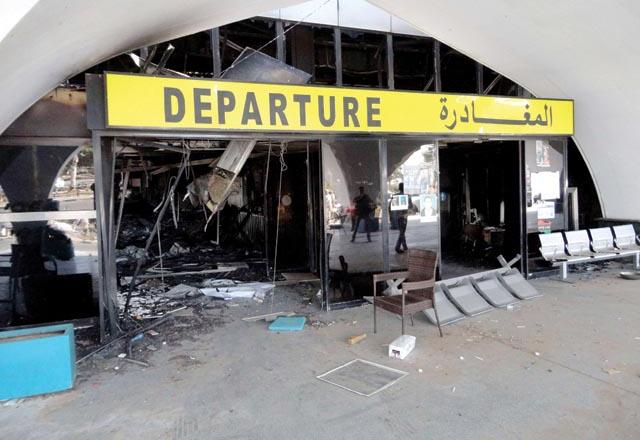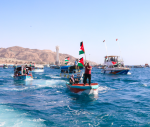You are here
Heavy shelling resumes in Libyan capital Tripoli
By Reuters - Aug 10,2014 - Last updated at Aug 10,2014
TRIPOLI — Heavy shelling resumed in the Libyan capital Tripoli on Sunday after three days of relative calm following more than a month of street fighting between rival armed factions battling for control of the city’s airport.
The North African OPEC oil producer is facing the worst violence since the 2011 war that toppled Muammar Qadhafi, with more than 200 people killed. Many Western embassies and international companies have evacuated staff members.
Southern Tripoli was covered by black plumes of smoke, with artillery and rockets hitting areas around the international airport, where two rival brigades of ex-rebels have established front lines.
There were no immediate reports of casualties from the new exchanges. But the health ministry said it cannot reach hospitals because of power failures and gasoline shortages in Tripoli.
“We have been trying to gather information and details, but it is really hard to reach doctors,” health ministry spokesman Ammar Mohammed said.
A United Nations delegation has been in Tripoli since Friday to try to broker a ceasefire between armed factions loyal to Islamist-allied Misrata brigades and their rivals allied to the western town of Zintan.
An official from the delegation, who declined to be identified, said on Saturday that UN envoys were optimistic.
“The mission has already met several key actors and is still fairly optimistic that a ceasefire can be obtained,” the official said.
Libya’s newly elected parliament has also called for an immediate ceasefire, but the main Islamist political party and its allies have opposed the fact that parliament has been meeting in the eastern town of Tobruk, which they described as unconstitutional.
“We recognise the parliament, but we don’t recognise its sessions in the town of Tobruk and all the decisions that come from there,” Ahmed Hadil, a spokesman of the Central Shield brigades, one of the militias fighting to control the airport, told reporters on Saturday.
Since the fall of Qadhafi, Libya’s government has been unable to control rival militias of heavily armed former rebels, who once fought against Qadhafi but now refuse to disarm and count on semi-official support from ministries or politicians.
Fighting since last month over the Tripoli airport involves two loose factions.
On one side are Zintanis, including some former Qadhafi forces, who present themselves as a bastion against Islamist fundamentalists and the Muslim Brotherhood.
Against them are brigades from the western port of Misrata, allied with Islamist political forces and other militias, who say they are fighting to clear out remnants of Qadhafi’s army.
Related Articles
Libya’s newly elected house of representatives held its first session on Saturday, holed up in a heavily guarded provincial hotel as armed factions turned the two biggest cities, Tripoli and Benghazi, into battlefields.
The Libyan parliament that was replaced in an election in June reconvened on Monday and chose an Islamist-backed deputy as prime minister, leaving the chaotic country with two rival leaders and assemblies each backed by armed factions.
Libya’s parliament on Wednesday voted to disband the country’s militia brigades and called on the United Nations to protect civilians in an effort to end the worst fighting between armed factions since the 2011 fall of Muammar Qadhafi.


















